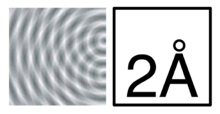Lookback: My Review of Deus Ex and a World that is Conspiracy
The following is something I wrote for the late, great Feed.com. Unfortunately, it's only archived sporadically on the Wayback Machine (get on that, Brewster, thanks). But it's probably not totally obviated, sad to say.
THE BAROQUE PLOTS and fetishistic icons of conspiracy theory -- the grassy knoll, unmarked helicopters, Roswell -- have, over the past few years, been moved from samizdat, passed between the trembling hands of true believers, into the common pop-cultural vocabulary. Oliver Stone followed the money in JFK; the WB populates Roswell with its regular cast of coifed and limpid-eyed teens; and, most recently, Deus Ex, a role-playing/action game from Ion Storm, mixes up a potent pop Molotov cocktail by linking together nearly every known paranoid fantasy, worldly or otherwise.
The vaguely cyberpunkish setting for the game is the near future, when a separationist movement has grown from its Pacific Northwest roots (the real-life land of both Microsoft and white separatists) to a national force, taking advantage of technological, ecological, and political breakdowns that have fractured the federal government. Since what's left of the government as we know it has its hands full managing a plague of mysterious origin, most civil control has been ceded to the United Nations and UNATCO, its antiterrorism unit. That’s where you get involved: in Deus Ex, you are a nanotech-augmented agent of UNATCO who discovers, in true paranoiac fashion, that All Is Not As It Seems. You spend the rest of the game navigating lies wrapped in half-truths wrapped in secrets. For example, in your first mission, the leader of a terrorist cell berates you for your political naïveté -- "Haven't you ever heard of the Trilateral Commission? Didn't you know the UN was built on land donated by the Rockefellers?" Later, the head of FEMA -- the Federal Emergency Management Agency, which is, as all real-world cryptologists know, empowered to suspend the Constitution for such feeble excuses as tornadoes, hurricanes, and earthquakes -- emerges as one of your arch enemies. Majestic 12, black helicopters, the Templars, Echelon, televangelism, the Illuminati, and Area 51 all turn up along the way, as well. (Thankfully missing are the Protocols of the Elders of Zion.) In the game, as in life, conspiracies are a fractal belief system: Examine one closely and you'll only find more jagged edges, more places for other, more fantastic theories to latch on.
It's telling, though, that Deus Ex guts one of the legendarily major players in the worldwide game of shadowy manipulation: the U.S. government. The game posits a world in which the federal establishment is not just shattered, but reduced to a tool of the real players: the conspiracies and covert governments. It's an alarmingly familiar echo of the attitudes so effectively fomented by post-Reagan pols and pundits, who tag government as inherently impotent (except when shackling industries with regulation) and clownishly inefficient.
Which is perhaps what makes Deus Ex such a compelling narrative: It marks the beginning of a new mythology. With the old order of monolithic geopolitical powers gone since the Soviet Union's implosion and the American political war against Big Government, we may be seeing the beginning of a new pop conspiracy cycle, one in which the feds don't even rate as evil conspirators.
